Books
Order By
Filter By Topic
- Agriculture & Food
- Anarchism
- Art & Architecture
- Autobiography & Memoir
- Biography
- Business & Economics
- Decolonization
- Disability Studies
- Education
- Environmental Studies
- Ethnic Studies
- Film & Media Studies
- Gender Studies
- Geography
- History
- Human Rights
- Icelandic Studies
- Identity Studies
- Immigration
- Indigenous Studies
- Inuit Studies
- Labour Studies
- Law
- Letters & Correspondence
- Linguistics
- Literary Criticism
- Literature
- Medical History
- Mennonite Studies
- Métis Studies
- Military History
- Museum Studies
- Music
- Oral History & Storytelling
- Performing Arts
- Political Studies
- Public Policy
- Religion
- Resource Management
- Social History
- Sports & Recreation
- Translation
- Urban Studies
- Women's Studies
Filter By Author
- Kerry Abel
- Christopher Adams
- Jennifer Adese
- Helen Olsen Agger
- Freda Ahenakew
- Kateri Akiwenzie-Damm
- Taiaiake Alfred
- John Allardyce
- Bob Altemeyer
- Anahareo
- Chris Andersen
- Kim Anderson
- Jennifer Anderson
- Judy Anderson
- Colin R. Anderson
- Mark Cronlund Anderson
- Paul Andrew
- Michael Angel
- Bob Antone
- Birna Arnbjörnsdóttir
- Joanne Arnott
- Tim Aubry
- Jillian Austin
- Marilyn Baker
- Richard Balasko
- Jennifer Ball
- Marilyn Barber
- Dale Barbour
- Leo Baskatawang
- Robert E. Beamish
- Rebecca Beausaert
- Ervin Beck
- Mary A. Beckie
- Alexander Begg
- Yale D. Belanger
- Yale Belanger
- Warren Bernauer
- Haraldur Bessason
- Ustun Bilgen-Reinart
- Cynthia Bird
- Christina Birdsall-Jones
- Birna Bjarnadottir
- Jill Blakley
- Jim Blanchard
- Duncan Blewett
- Leonard Bloomfield
- Eva A. Bogdan
- Mark Bomford
- Marleny M. Bonnycastle
- Phillip Borell
- Patricia Bovey
- Gerald Bowler
- Joseph Boyden
- Katherine Boyer
- Andrea Bradford
- Jennifer Brady
- Úlfar Bragason
- Di Brandt
- Jennifer A. Braun
- Albert Braz
- Marian Bredin
- Robert Brightman
- Gayle Broad
- Samara Brock
- Stephen Brooks
- Curtis Brown
- Deidre Brown
- Jennifer S.H. Brown
- Robin Jarvis Brownlie
- Jarvis Brownlie
- Christopher Bryant
- Ryan Bullock
- J.M. Bumsted
- Robyn Bunn
- Kristin Burnett
- Bonnie Burns
- Karen Busby
- Ila Bussidor
- Dennis L. Butcher
- Colleen Bytheway
- Alison Calder
- Wayne J. Caldwell
- Wayne Caldwell
- Maria Campbell
- Sonia Cancian
- Mary Agnes Capilano (Lixwelut)
- Joe Capilano (Sahp-luk)
- Stanislao Carbone
- Warren Cariou
- Keith Thor Carlson
- John Carpenter
- Ian Carr
- Sarah Carter
- Jennifer Carter
- Ma-Nee Chacaby
- Rebecca Cherner
- Julia Christensen
- Patricia Chuchryk
- David Church
- Kelly Clark
- Dana Claxton
- Chantal Clement
- Emmet Collins
- Michelle Coupal
- Robert Coutts
- Andrew Cowell
- Helen Coy
- Aimée Craft
- Daniel Shank Cruz
- Clint Curle
- Ruth Cuthand
- Dayna Danger
- Jim Daschuk
- Katsitsén:hawe Linda David Cree
- Heather Dean
- Bill Deen
- Alex Deighton
- Andrew Dennis
- Frances Desjarlais
- Anais Detolle
- John Devlin
- Madeleine Dion Stout
- Jill Doerfler
- Louis-Jacques Dorais
- Heather Dorries
- Henry E. Duckworth
- Louise Duguay
- Joan E. Durrant
- Erika Dyck
- Alexander Dyck
- Paul D. Earl
- Emily Eaton
- Ferdinand Eckhardt
- Fred Edge
- Paul Edwards
- Renate Eigenbrod
- John Elias
- C. Douglas Ellis
- Lois Emery
- Robert Englebert
- Richard A. Enns
- Jo-Ann Episkenew
- Marlene Epp
- Stefan Epp-Koop
- Bruce Erickson
- John Everitt
- Angela Failler
- Helen Fallding
- Andrew Faries
- Susan Farrell
- Sherry Farrell Racette
- Vera Fast
- Amanda Fehr
- Lawrence Felt
- Erica Ferguson
- Barry Ferguson
- Teri Redsky Fiddler
- Elizabeth Finnis
- Chantal Fiola
- Lionel LeMoine FitzGerald
- Phil Fontaine
- Peter Foote
- Timothy P. Foran
- Laura Forsythe
- Renee Fossett
- Sid Frankel
- Patricia Franks
- Crystal Gail Fraser
- Mini Aodla Freeman
- Joshua Freistadt
- Willie Frenchman
- Alexander Freund
- Gerald Friesen
- Jean Friesen
- Marcy Friesen
- Peter Frost
- Aya Fujiwara
- Delia Gavrus
- Felicia Gay
- Gary Gerber
- Becca Gercken
- Dale Gibson
- Lee Gibson
- Jodi Giesbrecht
- James P. Giffen
- Alison Gillmor
- R.J. Glendinning
- Adara Goldberg
- Alexey Golubev
- Dan Goodley
- Joan Grace
- Katherine Graham
- Margaret Graves
- Arthur Green
- Charmaine Green
- Kelly Greenop
- Shiloh Groot
- Amanda Grzyb
- Finnbogi Gudmundsson
- Eric Guimond
- Jeff Gundy
- Rita F. Gunn
- Sophie Gunner
- James Gunner
- Ankit Gupta
- Paul Hackett
- Sigurjon Baldur Hafsteinsson
- Louise Bernice Halfe
- James Hanley
- Heidi Harms
- James B. Hartman
- Cameron Harvey
- C. Nathan Hatton
- Travis Hay
- Franchesca Hebert-Spence
- Daniel Heidt
- Robert Henry
- Rory Henry
- Gordon Henry Jr.
- Jack Hicks
- Tomson Highway
- Susan M. Hill
- Janice C. Hill
- Stew Hilts
- Rhonda L. Hinther
- Arny Hjaltadottir
- Darrin Hodgetts
- Abram Hoffer
- Steven M. Hoffman
- Brendan Hokowhitu
- Ann Hostetler
- Terrance Houle
- Stella Hryniuk
- Huddart Kennedy
- David Hugill
- Robert Alexander Innes
- Zbigniew Izydorczyk
- George Jacob
- Stephen Jaeger
- Robert Jennings
- Jon Johannesson
- Lionel Johnson
- Josee Johnson
- E. Pauline Johnson (Tekahionwake)
- Faith Johnston
- Basil Johnston
- Basil H. Johnston
- Esyllt W. Jones
- Harlo L. Jones
- Daniel Heath Justice
- Jim Kâ-Nîpitêhtêw
- Fannie Kahan
- Elspeth Kaiser-Derrick
- Julia Spicher Kasdorf
- Thomas Ka’auwai Kaulukukui Jr.
- Deborah Keahey
- George Kenny
- Nathalie Kermoal
- Selena Kern
- Serena Keshavjee
- Ahmed Khan
- Mary Kinnear
- Gabriel Kiokee
- Verna J. Kirkness
- Doreen Helen Klassen
- Fran Klodawsky
- Mustafa Koç
- Royce Koop
- Gerry Kopelow
- Lisa Koperqualuk
- Valerie J. Korinek
- Derek Kornelsen
- Paul Kraehling
- Larry Krotz
- Peter Kulchyski
- Keneva Kunz
- Whitney Lackenbauer
- Kiera L. Ladner
- Hugh Lafave
- Nanci Langford
- Elizabeth LaPensée
- Emanuel Lapierre-Fortin
- Catherine Larochelle
- Emma LaRocque
- Margaret Laurence
- Keith Lee
- Lloyd L. Lee
- Margaret Lehman
- John C. Lehr
- Darryl Leroux
- Karine Levasseur
- Claude Lévi-Strauss
- Charles Z. Levkoe
- Gabrielle Lindstrom
- Joel Linklater
- Yngve Georg Lithman
- Royden Loewen
- Hannah Loon
- Barbara Lorenzkowski
- D.M. (Donald Merwin) Loveridge
- Kristen Lowitt
- Brittany Luby
- Paul W. Lukens Jr.
- John Sutton Lutz
- Victor P. Lytwyn
- Catherine Macdonald
- Maria João Maciel Jorge
- Shauna MacKinnon
- Vera Manuel
- Emalene Manuel
- Lee Maracle
- Jane Mariotti
- Jennifer Markides
- Eric Marr
- Karen L. Marrero
- Susan Marshall
- Katherine Martens
- Keavy Martin
- Wanda Martin
- Thibault Martin
- Ralph Martin
- Orest T. Martynowych
- Courtney W. Mason
- Merle Massie
- Emily Masty
- Cathy Mattes
- William J. Mayer-Oakes
- Sophie McCall
- Mary Jane Logan McCallum
- Tyler McCreary
- J.D. McDougall
- Jonathan McGavock
- Naxaxalhts’i – Albert “Sonny” McHalsie
- Graham McInnes
- Brian D. McInnes
- Sam McKegney
- Sarah M. McKinnon
- Ellen McLeod
- Neal McLeod
- Margaret E. McPherson
- Tony McQuail
- Samantha Mehltretter
- George Melnyk
- Paul Memmott
- Rene Meshake
- Valerie E. Michaelson
- Rod Michalko
- Christine Miller
- Victoria Millious
- John S. Milloy
- John Mills
- Allen Mills
- Candice Minch
- Kimberly Minor
- Tracey Mitchell
- Jim Mochoruk
- Michael Moffatt
- Paul Moist
- Enos T. Montour
- Rick Monture
- Kimberley Moore
- Aaron Moore
- Scott L. Morgensen
- Leah Morton
- A. Dirk Moses
- Daniel David Moses
- Alonzo Moss, Sr.
- Morris Mott
- Phil Mount
- Devi Dee Mucina
- Shezan Muhammedi
- Adam Muller
- Jim Mulvale
- Erika Mundel
- Audie Murray
- Jorge A. Nállim
- Mitiarjuk Nappaaluk
- Ronald J. Nash
- Alan Nash
- Daphne Nash
- David C. Natcher
- Jesse Nathan
- James Naylor
- Hannah Tait Neufeld
- David Newhouse
- John D. Nichols
- Sarah Nickel
- Kevin Nikkel
- Patricia M. Ningewance
- Ken Norman
- Andrea Olive
- Stephen Osborne
- Humphry Osmond
- Lynn Palmer
- Herman Palsson
- Gisli Palsson
- Ruth Panofsky
- Jon Parmenter
- Julia Parrel
- Taqralik Partridge
- John Paskievich
- Kazimierz Patalas
- Sean Patterson
- Howard Pawley
- Agnieszka Pawłowska-Mainville
- Ian Peach
- Francis Peddie
- Laura Peers
- Julie Pelletier
- Tshaukuesh Elizabeth Penashue
- David H. Pentland
- Richard Perkins
- Armando Perla
- Jody Perrun
- Adele Perry
- Evelyn Peters
- Ian Peters
- Jacqueline Peterson
- David Petrasek
- Katherine Pettipas
- Ruth B. Phillips
- Allison Piché
- James M. Pitsula
- Mary Louisa Plummer
- Seriy Polyakov
- Jene M. Porter
- Barry Potyondi
- Christopher Powell
- Lyall Powers
- Susan Prentice
- Andrea Procter
- Sarah Prout
- Julie Rak
- Jan Raska
- Magdalene Redekop
- Deanna Reder
- Sabrina Reed
- Paulette Regan
- Jennifer Reid
- Mary Reid
- Suzanne Reid
- Waubgeshig Rice
- William Kahalepuna Richards Jr.
- Keren Rideout
- Christian Riegel
- Carmen L. Robertson
- Michael A. Robidoux
- Roy Romanow
- Arthur Ross
- Basil Rotoff
- Andrea Rounce
- Gabrielle Roy
- Molly P. Rozum
- Mohi Rua
- Bernard Saladin d'Anglure
- Kelly Saunders
- Todd Scarth
- David M. Schaepe
- Rebecca Schiff
- Norman Schmidt
- Gregory Scofield
- Steffanie Scott
- Simeon Scott
- Joan Scottie
- Elizabeth Sellers
- Alix Shield
- Carol Shields
- Annette Siddle
- Roger I. Simon
- Maureen Simpkins
- Wayne Simpson
- Niigaanwewidam James Sinclair
- Struan Sinclair
- Sasha Sky
- Doug Smith
- M.A. (Peggy) Smith
- Barbara A. Smith
- Raymond R. Smith
- Dan Smith
- Leah Sneider
- Paul G. Socken
- Tammara Soma
- Cathryn Sprague
- Isabelle St. Amand
- Christoph Stadel
- Heidi Kiiwetinepinesiik Stark
- S.E. Stewart
- Ian Stewart
- Kenneth Stewart
- Adrian Stimson
- Matthew Stock
- Daniel Stone
- Blair Stonechild
- Nora Foster Stovel
- Mandy Suhr-Sytsma
- Jennifer Sumner
- Survivors of the Assiniboia Indian Residential School
- Xavier Sutherland
- Isaiah Sutherland
- Erin Sutherland
- John Swift
- Frances Swyripa
- Thomas H.B. Symons
- David Szanto
- Irina Takala
- Lisa Tatonetti
- Vander Tavares
- Andrew Taylor
- Tiniwai Chas Te Whetu
- Guillaume Teasdale
- Ty P. Kawika Tengan
- Janis Thiessen
- Paul C. Thistle
- Paul Thomas
- Paul G. Thomas
- Jonas Thor
- Diana Thorneycroft
- Höskuldur Thráinsson
- Thomas Kimeksun Thrasher
- Wilfreda E. Thurston
- Hildi Froese Tiessen
- Paul Tiessen
- Travis Tomchuk
- Julie Tomiak
- Lani Trenouth
- Truth and Reconciliation Commission of Canada
- Alina Turner
- David Turner
- Joan Turner
- James Urry
- Gail Guthrie Valaskakis
- Kirsten Valentine Cadieux
- Richard van Camp
- Charlotte van de Vorst
- Penny Van Esterik
- Nancy Van Styvendale
- Julie Vandervoort
- Matt Ventresca
- Helene Vosters
- Jill Wade
- Jeanette Waegemakers Schiff
- Cathy Covell Waegner
- James B. Waldram
- Gene Walz
- Robert Wardhaugh
- Douglas Watkinson
- Murray Watson
- A.McKibbin Watts
- Teodoro Weckowicz
- Eddy Weetaltuk
- Mary Agnes Welch
- Ronald A. Wells
- John Welsted
- Adrian Werner
- Hans Werner
- Silas Wesley
- Cassie Wever
- Chris White
- Sarah Whitecalf
- Ted Whitecalf
- Fred Wien
- Lori Wilkinson
- Rob Willetts
- Kayanesenh Paul Williams
- Anna J. Willow
- Bronwynne Wilton
- Timothy C. Winegard
- Pita Richard Wiremu King
- Nelson Wiseman
- Kirsten Wolf
- H. Christoph Wolfart
- H.C. Wolfart
- Carmen Wong
- Angie Wong
- Andrew Woolford
- Wanda Wuttunee
- Sarah Wylie Krotz
- John Wynne
- Hannah Wynne
- Elizabeth Yeoman
- Roman Yereniuk
- Kathryn A. Young
- Jon Young
- Robert Zacharias
- Valerie Zink
- Konstantinos Zougris
Filter By Series
- Critical Studies in Native History
- First Voices, First Texts
- Perceptions on Truth and Reconciliation
- paskwāwi masinahikewina/Prairie Writing
- Studies in Immigration and Culture
- Human Rights and Social Justice Series
- Contemporary Studies on the North
- Publications of the Algonquian Text Society
- University of Manitoba Icelandic Studies
- Manitoba Studies in Native History
Immigration
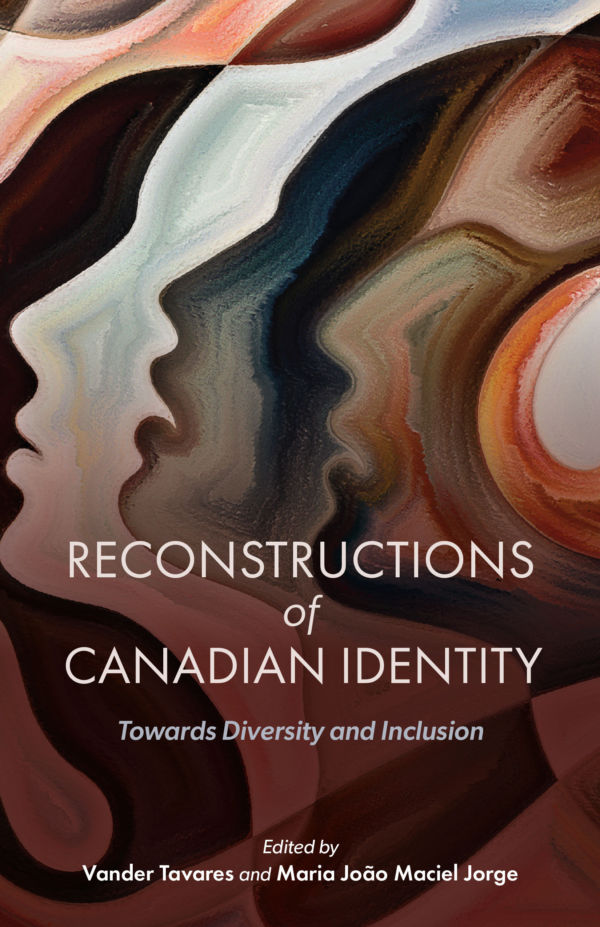
Reconstructions of Canadian Identity
Towards Diversity and Inclusion
In 1971, Canada became the first nation in the world to officially declare its bilingual and multicultural policies. This incisive collection examines what has changed over the past fifty years, highlighting the lived experiences of minoritized Canadians and offering insights into the critical work that lies ahead.
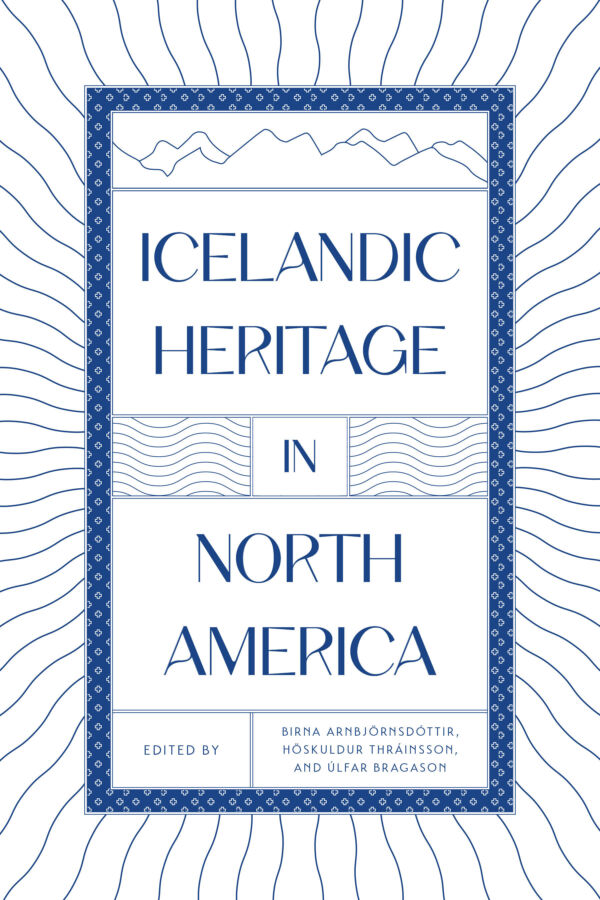
Icelandic Heritage in North America offers an in-depth examination of Icelandic immigrant identity, linguistic evolution, and legacy.
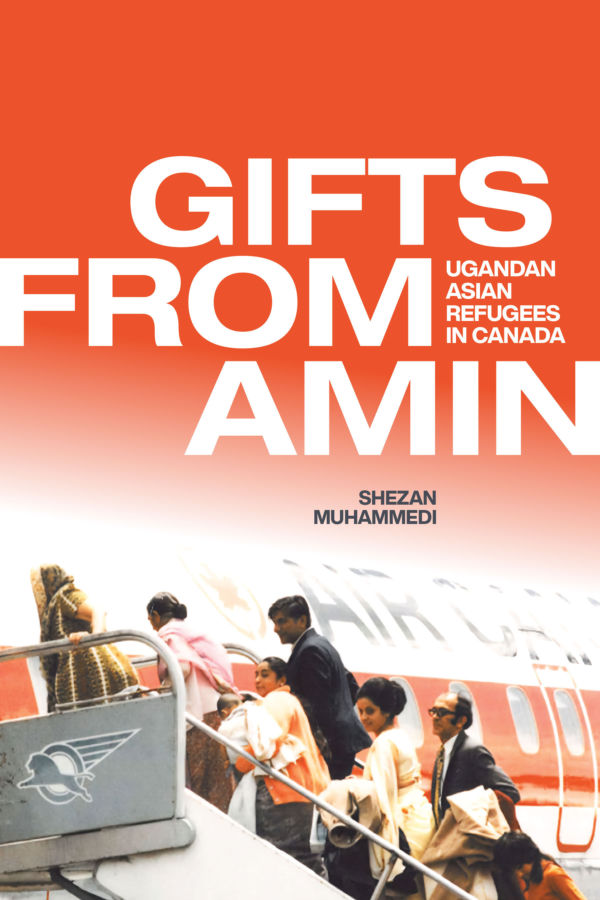
Gifts from Amin
Ugandan Asian Refugees in Canada
The first major oral history project dedicated to the stories of Ugandan Asian refugees in Canada, Gifts from Amin explores the historical context of their 1972 expulsion from Uganda, the multiple motivations behind Canada’s decision to admit them, and their resilience over the past fifty years.
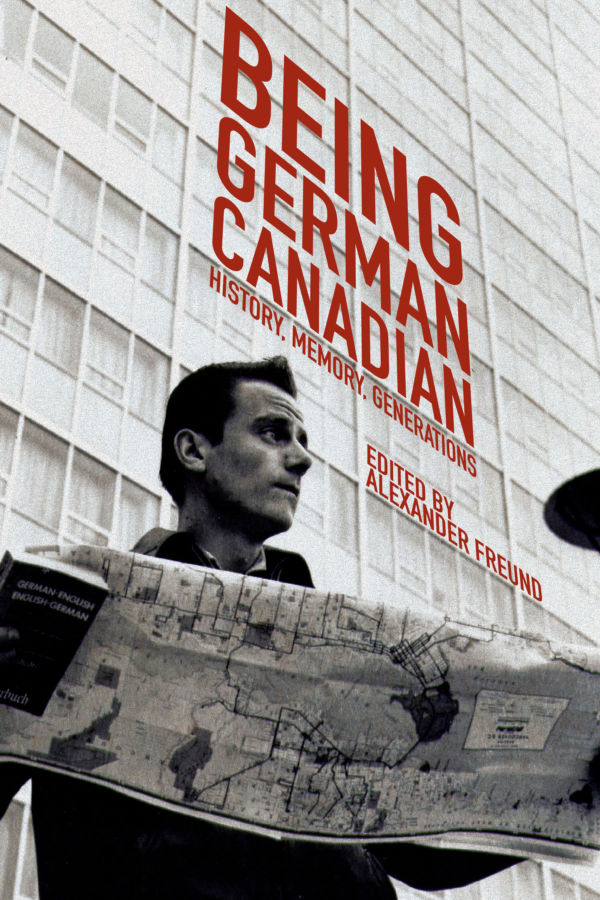
Being German Canadian
History, Memory, Generations
Being German Canadian explores how multi-generational families and groups have interacted and shaped each other’s integration and adaptation in Canadian society, focusing on the experiences, histories, and memories of German immigrants and their descendants.
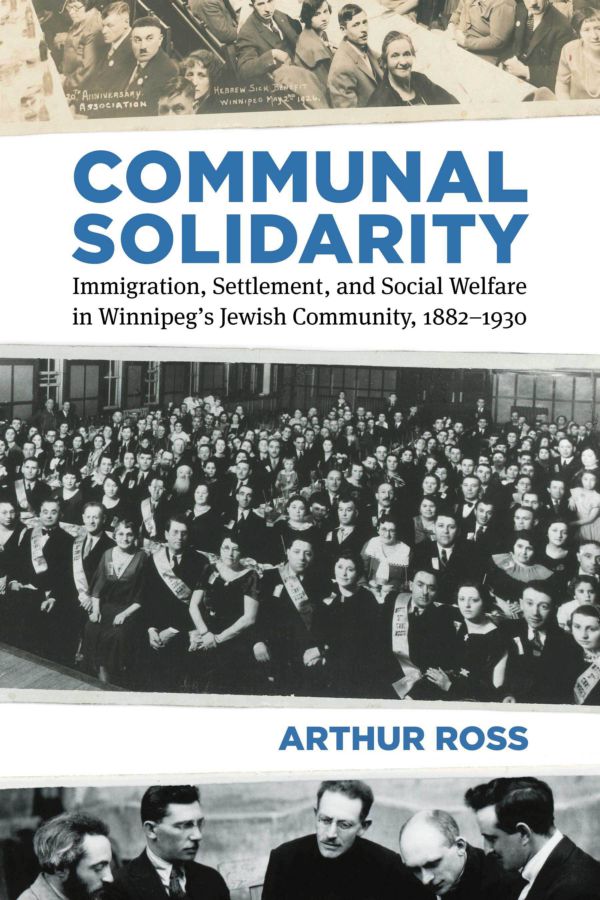
Communal Solidarity
Immigration, Settlement, and Social Welfare in Winnipeg’s Jewish Community, 1882–1930
Arthur Ross’s study of the formation of Winnipeg’s Jewish community is not only the first history of the societies, institutions, and organizations Jewish immigrants created, it reveals how communal solidarity shaped their understanding of community life and the way decisions should be made about their collective future.
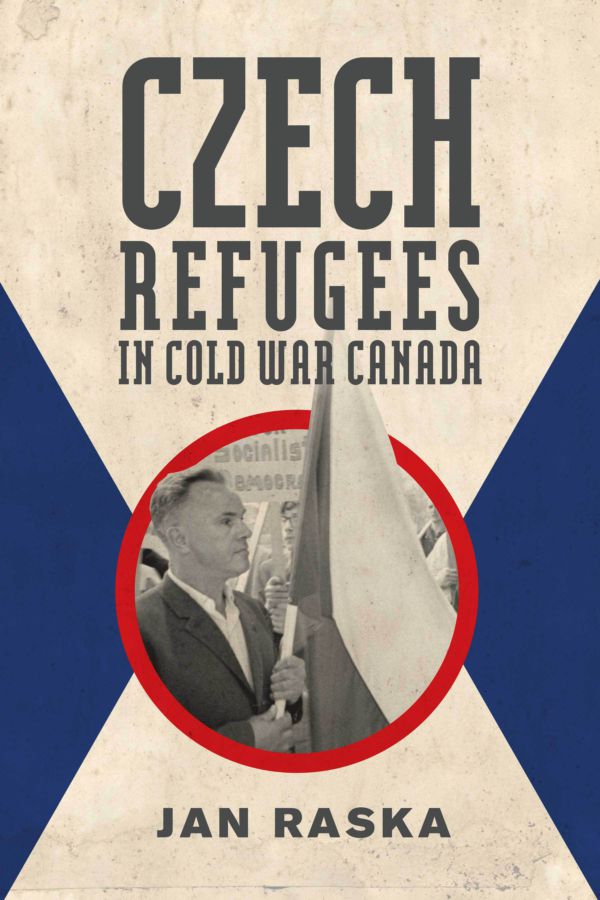
Czech Refugees in Cold War Canada
1945–1989
Jan Raska’s Czech Refugees in Cold War Canada explores how these newcomers joined or formed ethnocultural organizations to help in their attempts to affect developments in Czechoslovakia and Canadian foreign policy towards their homeland.
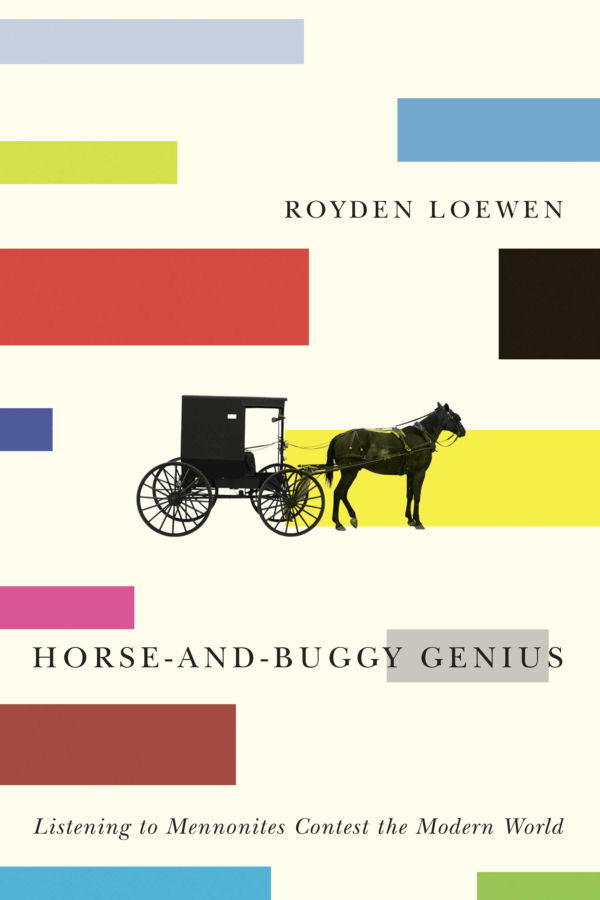
Horse-and-Buggy Genius
Listening to Mennonites Contest the Modern World
The history of the twentieth century is one of modernization, a story of old ways being left behind. Many traditionalist Mennonites rejected these changes, especially the automobile, which they regarded as a symbol of pride and individualism. They became known as a “horse-and-buggy” people.
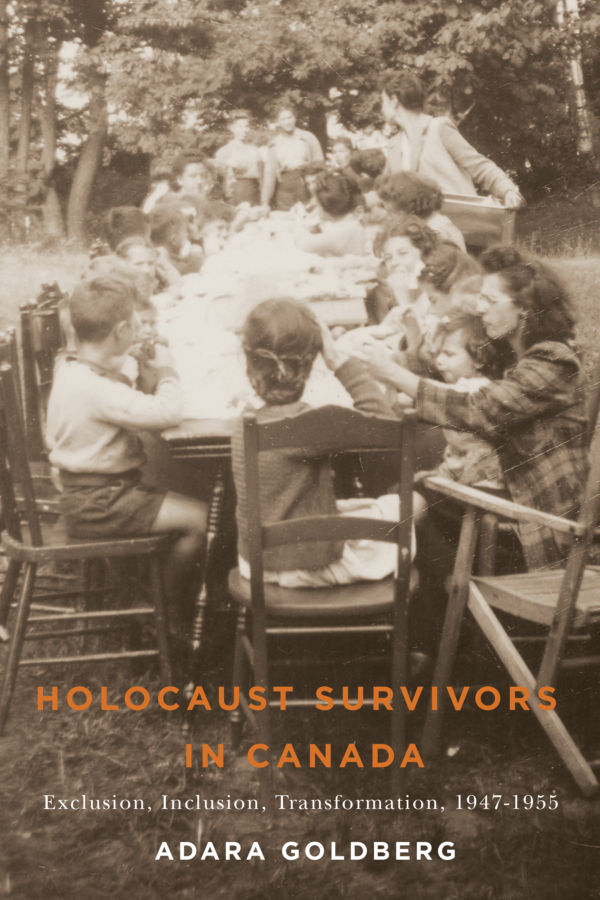
Holocaust Survivors in Canada
Exclusion, Inclusion, Transformation, 1947-1955
In the decade after the Second World War, 35,000 Jewish survivors of Nazi persecution and their dependants arrived in Canada. This was a watershed moment in Canadian Jewish history. Goldberg reveals the challenges in responding to, and recovering from, genocide from the perspective of “new Canadians” themselves.
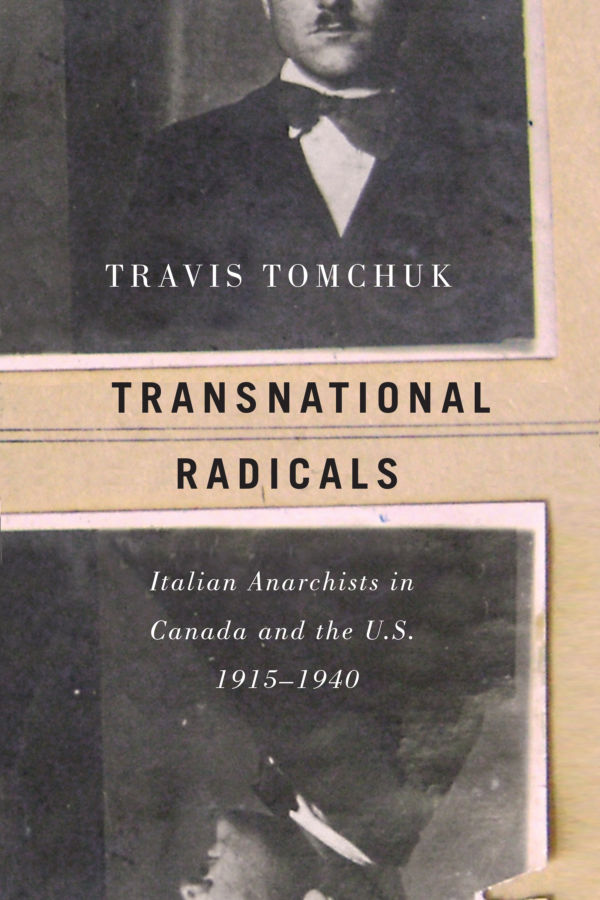
Transnational Radicals
Italian Anarchists in Canada and the U.S., 1915-1940
Italian anarchism emerged in the latter half of the nineteenth century, during that country’s long and bloody unification. Often facing economic hardship and political persecution, many of Italy’s anarchists migrated to North America. Transnational Radicals examines the transnational anarchist movement that existed in Canada and the United States.
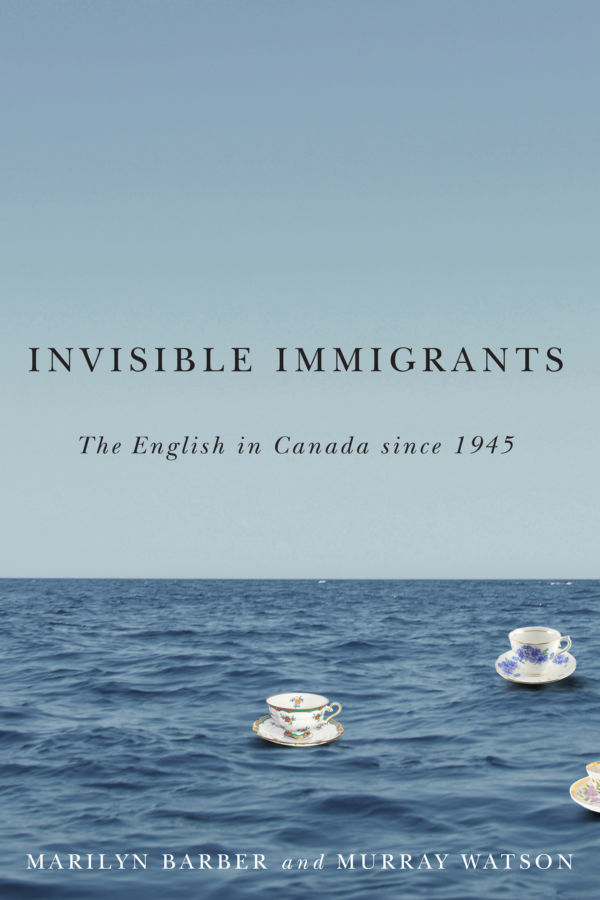
Invisible Immigrants
The English in Canada since 1945
Despite being one of the largest immigrant groups contributing to the development of modern Canada, the story of the English has been all but untold. In Invisible Immigrants, Barber and Watson document the experiences of English-born immigrants who chose to come to Canada during England’s last major wave of emigration.
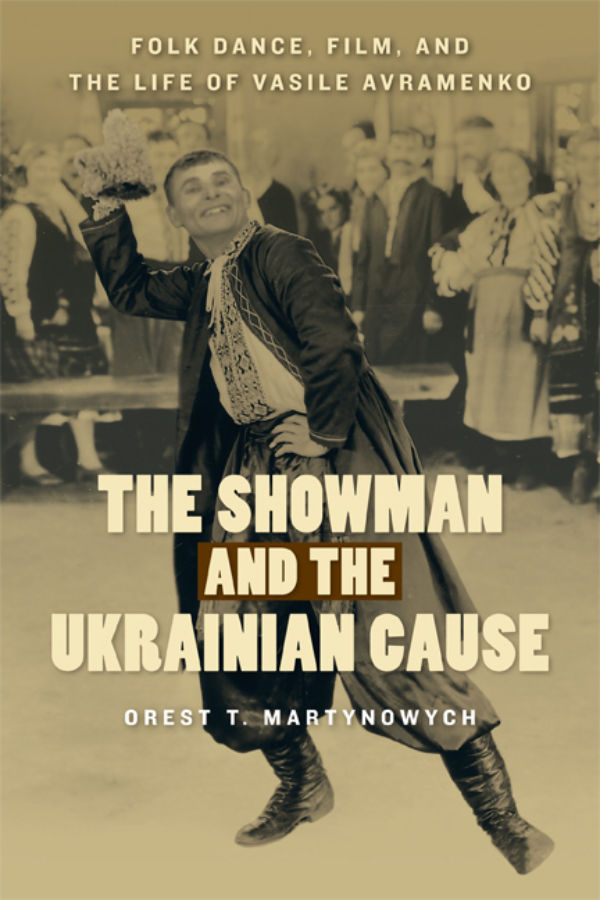
The Showman and the Ukrainian Cause
Folk Dance, Film, and the Life of Vasile Avramenko
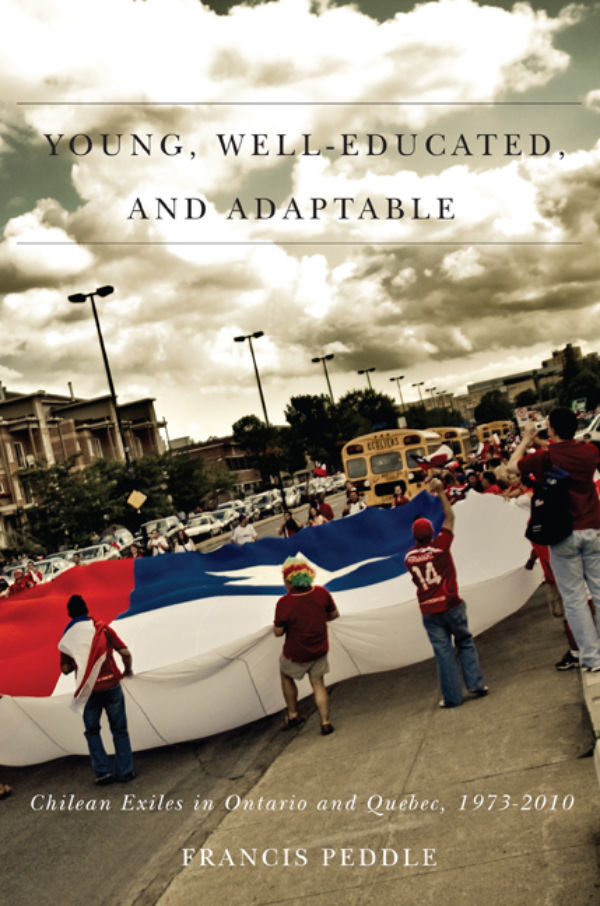
Young, Well-Educated, and Adaptable
Chilean Exiles in Ontario and Quebec, 1973-2010
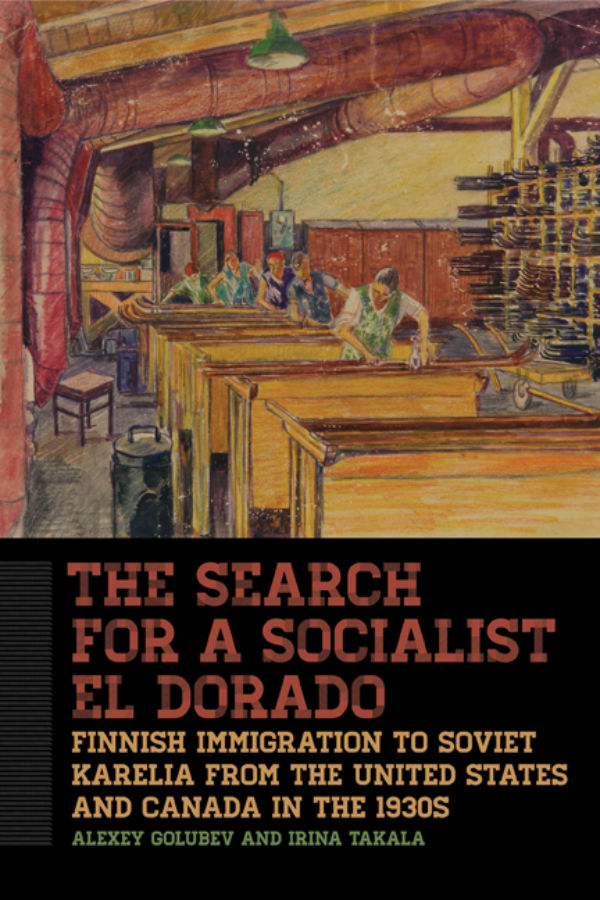
The Search for a Socialist El Dorado
Finnish Immigration from the United States and Canada to Soviet Karelia in the 1930s
The untold story of the founding and subsequent destruction of a Finnish socialist community in the Soviet Union.
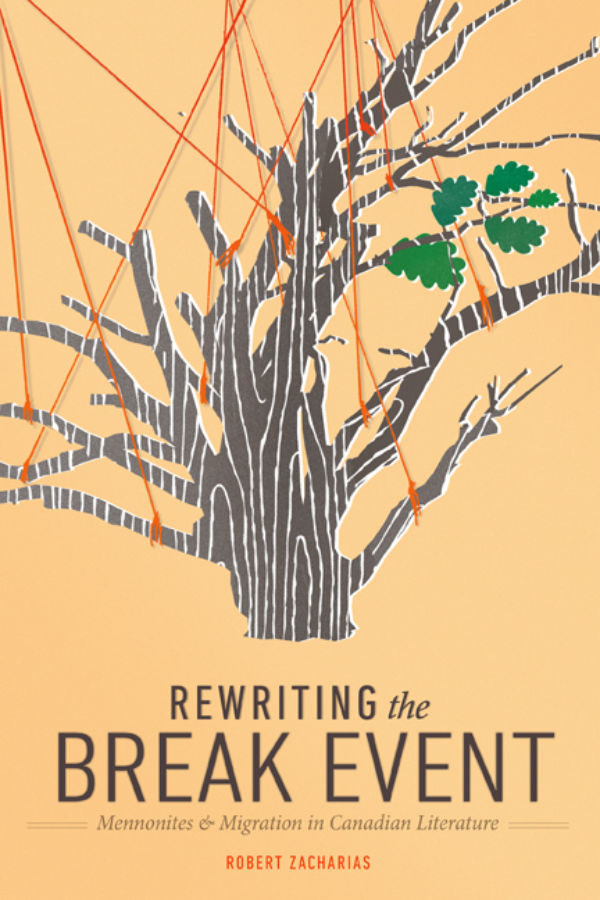
Rewriting the Break Event
Mennonites and Migration in Canadian Literature
Drawing on recent work in diaspora studies, Rewriting the Break Event offers a historicization of Mennonite literary studies in Canada, followed by close readings of five novels that rewrite the Mennonite break event through specific strains of emphasis, including a religious narrative, ethnic narrative, trauma narrative, and meta-narrative.
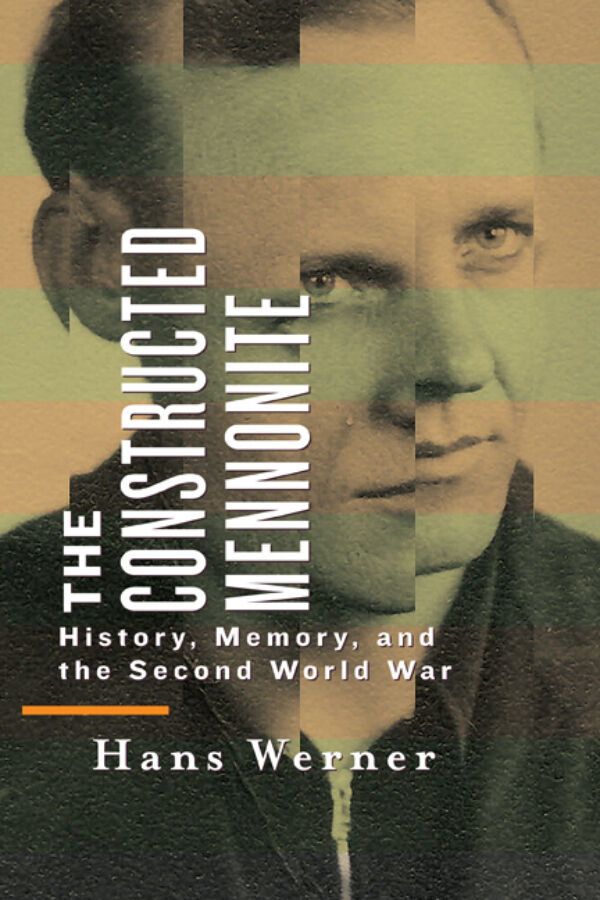
The Constructed Mennonite
History, Memory, and the Second World War
One man, four identities, and a son's quest to reconcile the public and private lives of his Mennonite father in WWII.
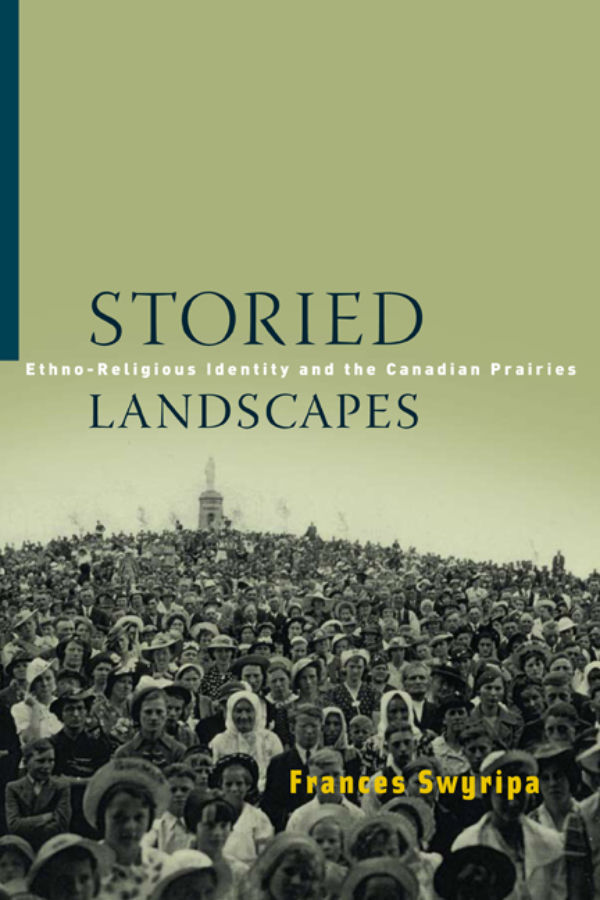
Storied Landscapes
Ethno-Religious Identity and the Canadian Prairies
Storied Landscapes is a beautifully written, sweeping examination of the evolving identity of major ethno-religious immigrant groups in the Canadian West including Ukrainians, Mennonites, Icelanders, Doukhobors, Germans, Poles, Romanians, Jews, Finns, Swedes, Norwegians, and Danes.
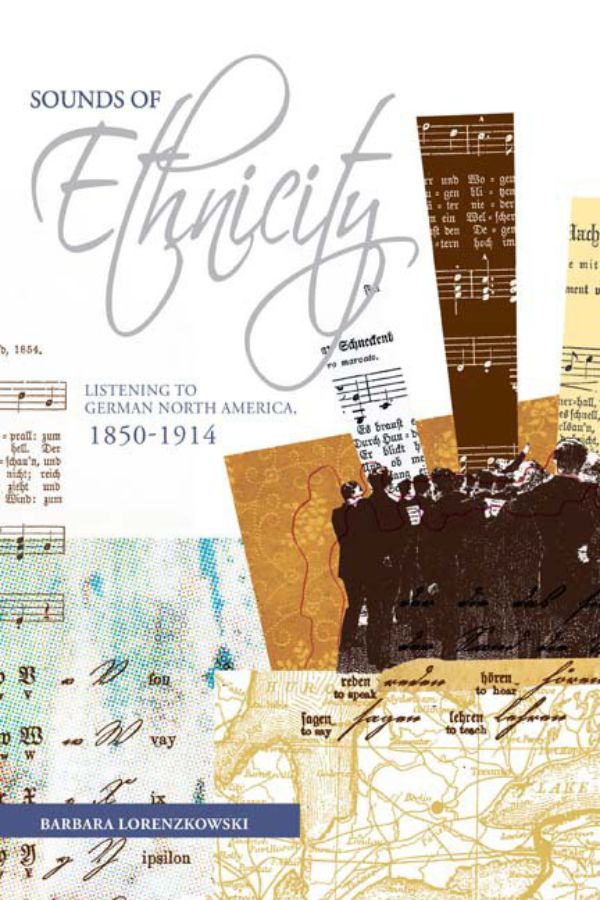
Sounds of Ethnicity
Listening to German North America, 1850 - 1914
Drawing connections between immigrant groups in Buffalo, New York, and Kitchener, Ontario, Barbara Lorenzkowski examines the interactions of German-language education, choral groups, and music festivals and their roles in creating both an ethnic sense of self and opportunities for cultural exchanges at the local, ethnic, and transnational levels.
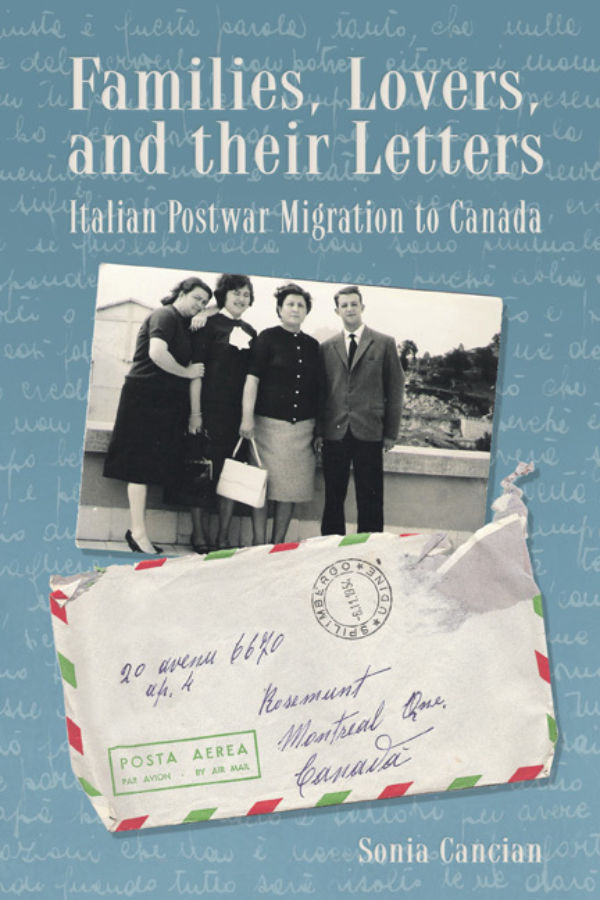
Families, Lovers, and their Letters
Italian Postwar Migration to Canada
In a micro-analysis of 400 private letters, Families, Lovers, and their Letters examines the experiences of Italian migrants to Canada and their loved ones left behind in Italy following the Second World War, when the largest migration of Italians to Canada took place.

